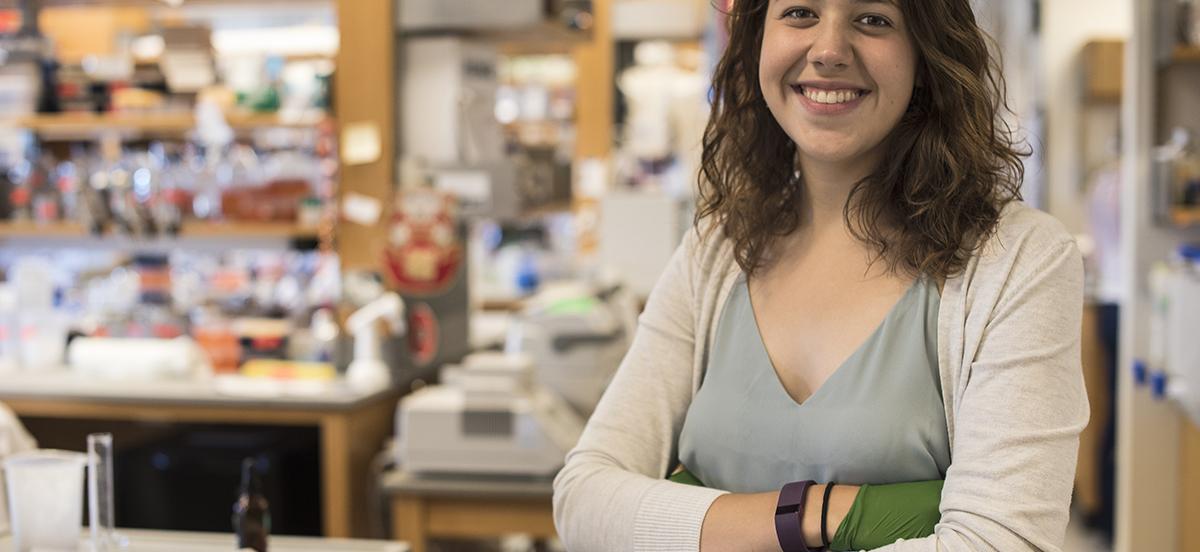Summer Centered: Amy Zamora ‘18 Preps Zebrafish Mutants

Amy Zamora '18 in the Jain lab. Photo by Holden Blanco '17.
Details
The math major is helping Assistant Professor of Biology Roshan Jain understand the behavioral repercussions of various genetic mutations.
This summer, the Marian E. Koshland Integrated Science Center (KINSC) has enabled Amy Zamora ‘18 to work on a research project that she would otherwise be closed to her. The math major has used funding from the KINSC Summer Scholars program to join Haverford Assistant Professor of Biology Roshan Jain in his biomedical research lab at the University of Pennsylvania, using zebrafish as model organisms to inquire into the impact of genetic mutations on their behavioral patterns.
"We're specifically interested in these mutations because there are many homologs to them in humans that cause diseases like schizophrenia," Zamora explains. "Overall, the goal of this research is to ultimately figure out if there is a genetic method of restoring wild-type behavior in mutants, both in zebrafish and generally across humans and their genetic homologs as well."
At the end of the summer, the mutants that Zamora and her labmates Keisuke Sawada '17, Emilia Cobbs '17, and Christina Szi '18 prepped in Jain’s lab will be ready to be raised and tested on this premise. They will be injected with a rescue construct, or plasmid DNA that contains a wild-type copy of the same gene that has been altered in the mutants, and the team hopes that following this treatment, the wild-type copy of the gene will be expressed in the subsequent germ lines and will rid them eventually of all behavioral abnormalities.
Zamora herself is doing a targeted research into ap2s1-CRISPR mutants, in which insertions or deletions have modificated the gene responsible for controlling clathrin-mediated endocytosis. Normally, when exposed to a frequently repeated stimulus, fish as well as other organisms will decrease their responsiveness to it as a form of learning by habituation. Mutation in this gene may impact their ability to exhibit this natural behavior. Most of the time, Zamora’s routine involves performing polymerase chain reactions or digests to identify the genotypes of the fish, crossing fish for breeding or outcrossing gene purposes, or sequencing DNA samples.
"I believe that the 10 weeks of enrichment in very hands-on research will give me the experiences I need to decide if this is right for me," Zamora says.
She is greatly appreciative of the relaxed, collaborative atmosphere created by Jain, who was also the laboratory instructor for Zamora’s "Cellular Structure and Function" biology course, as well as of the chance to re-discover some of her old passions.
"I think this internship will really drive my desire to look more into biology as it relates to my math major," she says. "I know majoring in math is what path I want to take, but after this summer's work I think I'm starting to regain a lot of the love that I was missing for biology. Now I think I'm really interested in mixing the two fields and maybe doing similar style research again, but with more of a mathematics twist."
—Katya Konradova '19
"Summer Centered" is a series exploring our students' Center-funded summer work.



